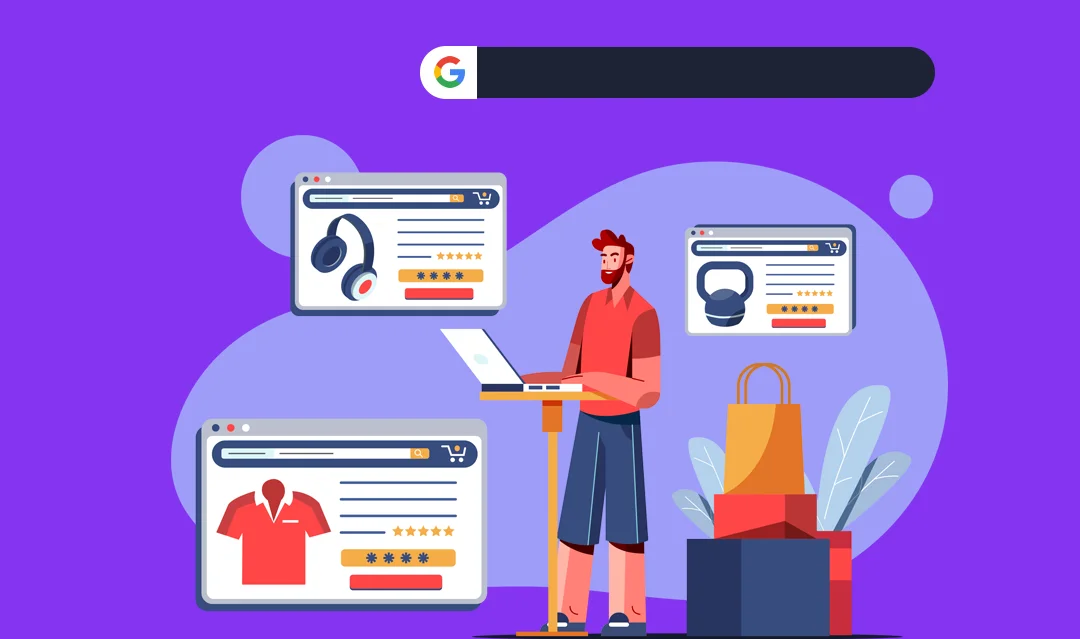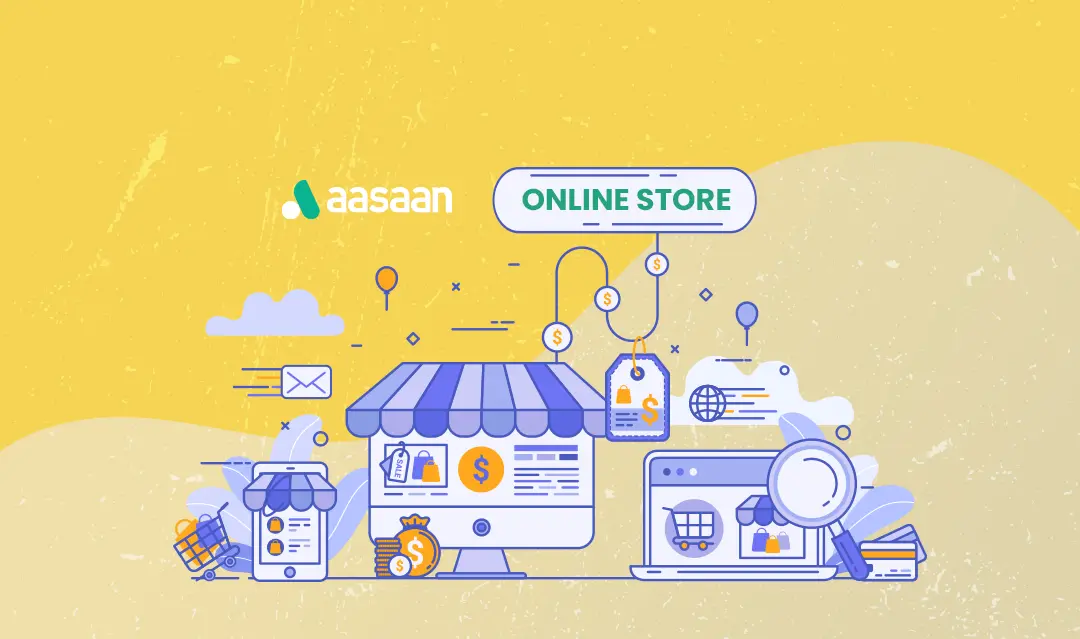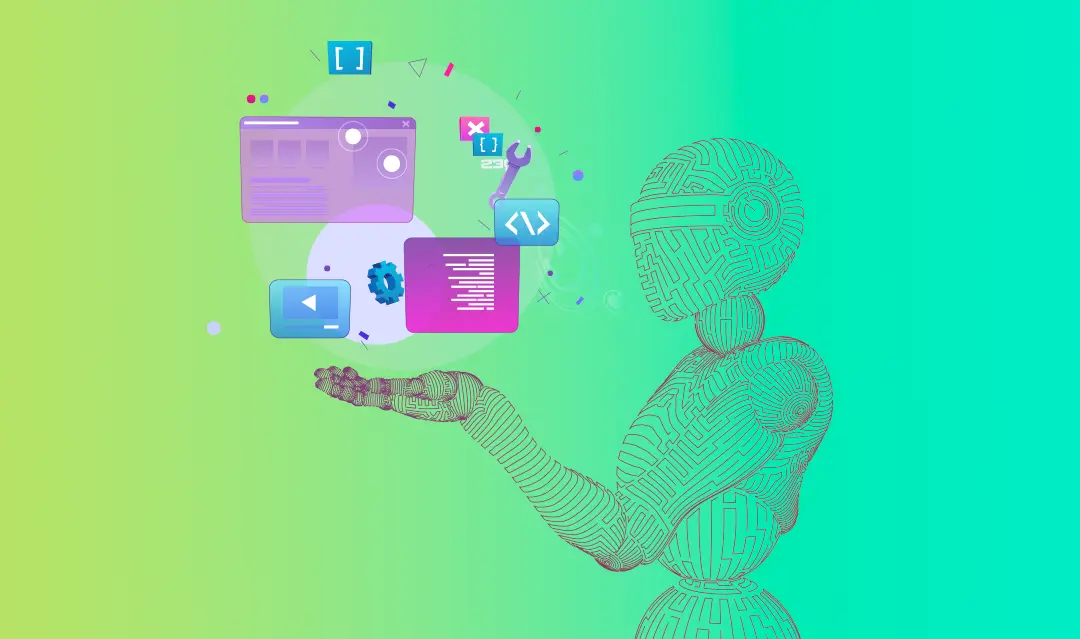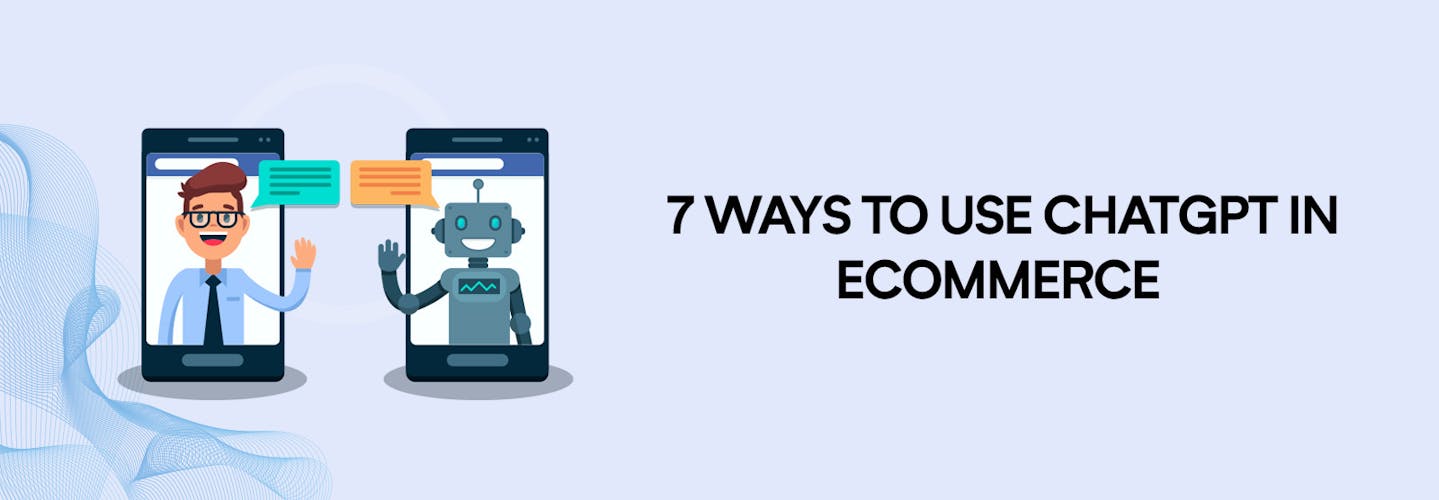
ChatGPT For E-Commerce: 7 Ways it Can Boost Your Business Growth
In the fast-paced digital landscape of 2025-26, E-Commerce businesses aiming for success should embrace the latest digital marketing trends and leverage this year’s technological advances.
With e-commerce sales predicted to hit an astonishing $6.3 trillion by 2025, it’s clear that the future of shopping lies online.
One such advancement gaining prominence is the integration of ChatGPT for E-Commerce businesses. These chatbots, powered by artificial intelligence (AI), engage with customers and website visitors in real-time, providing automated discussions about your products and services.
In November 2022, a groundbreaking AI technology, known as “Chat GPT,” was introduced. This innovative chatbot, developed by OpenAI, has the potential to reshape the E-Commerce landscape.
In this article, we explore ChatGPT’s role and how it can benefit E-Commerce businesses. Join us on this journey to discover the possibilities it holds for your online venture.
What is ChatGPT?
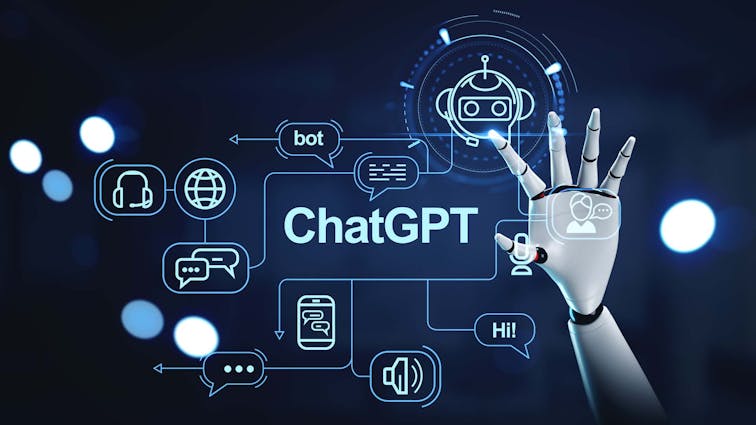
ChatGPT is a variant of the GPT (Generative Pre-trained Transformer) model developed by OpenAI. GPT, in its various versions (like GPT-2, GPT-3, and so on), is a state-of-the-art language processing AI model.
The term “ChatGPT” often refers to applications of the GPT model specifically tailored for chatbot or conversational AI purposes.
It’s a neural network model trained on millions of internet data points, with ChatGPT’s training data comprising 300 billion words.
ChatGPT’s capabilities vary by version but can provide intelligent responses to a wide range of questions and queries.
Here’s a breakdown:
- Generative: It can generate text based on the input it receives.
- Pre-trained: Before fine-tuning on specific tasks, the model is pre-trained on vast amounts of text data to understand language.
- Transformer: This refers to the underlying architecture used by the model, which is currently one of the most advanced for handling sequential data like text.
How does ChatGPT actually work?
ChatGPT works through a two-step process: pre-training and fine-tuning.
- Pre-training: In the pre-training phase, ChatGPT is trained on a large corpus of publicly available text from the internet. It learns to predict what comes next in a sentence by analyzing patterns and relationships in the text data. This helps the model develop a general understanding of language and grammar.
- Fine-tuning: After pre-training, ChatGPT goes through a process called fine-tuning. During fine-tuning, the model is trained on a narrower dataset that is generated with the help of human reviewers. These reviewers follow guidelines provided by OpenAI to review and rate possible model outputs for a range of example inputs. The model learns from this feedback and adjusts its responses accordingly.
The combination of pre-training and fine-tuning allows ChatGPT to generate coherent and contextually relevant responses based on the input it receives.
It uses the information from previous parts of the conversation to inform its responses and aims to have a conversational back-and-forth with users.
It’s important to note that while ChatGPT can generate impressive responses, it may not always provide accurate or reliable information, as it relies on the patterns it has learned from the training data, which can include both accurate and inaccurate information.
10 Ways to Use ChatGPT in eCommerce

1. Writing Product Descriptions
Product descriptions play a crucial role in attracting customers and conveying the benefits of a product.
ChatGPT can automatically generate detailed and compelling product descriptions for eCommerce websites. By analyzing the features and specifications of a product, ChatGPT can create engaging descriptions that highlight its unique selling points.
This saves time and resources while providing customers with more information to make informed purchasing decisions.
2. Providing Customer Support
Customer support is essential for a positive eCommerce experience. ChatGPT can be integrated into chatbots or virtual assistants to assist customers with their inquiries and concerns.
By leveraging its language processing capabilities, ChatGPT can understand and respond to a wide range of customer queries, providing instant support and reducing the burden on human support agents.
This improves the efficiency and effectiveness of customer service, leading to increased customer satisfaction.
3. Personal Shopping
Personalization is a key driver of eCommerce success. ChatGPT can analyze customer data, such as browsing history, purchase behavior, and demographic information, to make personalized product recommendations.
By understanding customer preferences and patterns, ChatGPT can suggest relevant products that align with individual tastes and needs.
This enhances the shopping experience, increases sales, and fosters customer loyalty.
4. Content Generation
Content is crucial for eCommerce businesses to engage their audience and drive traffic.
ChatGPT can assist in various content generation tasks, such as generating blog topics, conducting keyword research, proofreading, creating WordPress plugins, writing and debugging code, and generating video scripts.
By leveraging ChatGPT’s language generation capabilities, businesses can streamline content creation processes and ensure high-quality outputs.
5. Surveys and Quizzes
Market research is vital for understanding customer preferences and improving business strategies. ChatGPT can generate surveys and quizzes for market research purposes.
By designing survey questions and options, ChatGPT can help gather valuable insights about consumer behavior, product feedback, and market trends.
This data can inform decision-making processes and enable businesses to tailor their offerings to meet customer demands effectively.
6. Market Research
In addition to surveys and quizzes, ChatGPT can assist in broader market research.
By analyzing vast amounts of data and information, ChatGPT can provide insights into industry trends, competitor analysis, and customer preferences.
This facilitates informed decision-making, helps identify market gaps, and provides a competitive edge in the eCommerce landscape.
7. Enhancing Social Media Presence
Social media platforms are powerful tools for eCommerce businesses to connect with customers and drive engagement.
ChatGPT can help enhance social media presence by generating compelling social media captions, content ideas, and engaging with customers on social platforms.
By leveraging ChatGPT’s language generation capabilities, businesses can create captivating social media posts that resonate with their target audience, increasing brand visibility and customer interaction.
8. Improving SEO Strategy
Search Engine Optimization (SEO) is crucial for ranking higher in search engine results and driving organic traffic.
ChatGPT can assist with SEO strategy by providing content ideation, keyword research, and strategy development.
By analyzing search trends, generating relevant keywords, and suggesting optimization techniques, ChatGPT can help businesses improve their online visibility and attract more potential customers.
9. Writing Email Marketing Copy
Email marketing is a powerful tool for eCommerce businesses to nurture customer relationships and drive conversions.
ChatGPT can generate personalized sale emails, product recommendations, and persuasive points to encourage customers to make a purchase. By leveraging
ChatGPT’s language generation capabilities, businesses can create impactful email marketing campaigns that resonate with recipients, leading to higher open rates, click-through rates, and sales.
10. Leveraging ChatGPT for ads
ChatGPT can contribute to successful advertising strategies by creating persuasive ad copy that captivates and engages potential customers.
Its ability to understand and use language effectively allows it to capture the distinctive features and appeal of a product, generating promotional text that can attract clicks and conversions.
With ChatGPT, eCommerce businesses can automate ad copywriting tasks, allowing them to execute more campaigns within a shorter timeframe.
This can help broaden their customer outreach, increase click-through rates, and enhance their overall advertising efforts.
Other ways ChatGPT can be used in e-commerce include:
- Personalized product recommendations
- Automated social media engagement
- Virtual shopping assistants
- proofreading
- Managing Data
- Summarizing long content portions
- Response Generation and FAQs
These are just a few examples of how ChatGPT can be utilized in eCommerce. Its versatility and ability to generate human-like text make it a valuable tool for various aspects of online businesses.
By leveraging ChatGPT’s capabilities, businesses can streamline operations, enhance customer experiences, and drive growth in the competitive eCommerce landscape.
Final thoughts:
Harnessing the power of AI and specifically ChatGPT, has great potential to revolutionize the eCommerce industry.
From optimizing the customer support process to personalizing shopping experiences and even boosting SEO efforts, the applications are numerous.
What’s more, businesses can enjoy the benefits of improved efficiency, cost savings, enhanced customer satisfaction, and much more.
As we advance in AI technologies, it’s crucial for eCommerce businesses to adapt to stay competitive. Implementing these cutting-edge technologies will not only elevate online business practices but also provide a significant competitive advantage.
With AI at the helm, the digital commerce landscape is poised for transformative growth and endless possibilities.
FAQ’s:
1. Can chatbots be used for e-commerce?
Yes, chatbots can be extensively used for e-commerce. They serve various purposes, including assisting customers in product selection, answering frequently asked questions, processing returns, and providing 24/7 customer support. By automating these interactions, e-commerce businesses can enhance user experience, increase sales, and streamline operations.
2. What is a chatbot in eCommerce?
A chatbot in eCommerce is a software application designed to simulate human conversation. It can interact with customers in real-time, answering queries, providing product recommendations, and even assisting with checkouts. These chatbots use natural language processing (NLP) to understand and respond to user inputs, making the shopping experience more interactive and personalized.
3. Is ChatGPT free?
Yes, as for now, ChatGPT is free for personal use.



